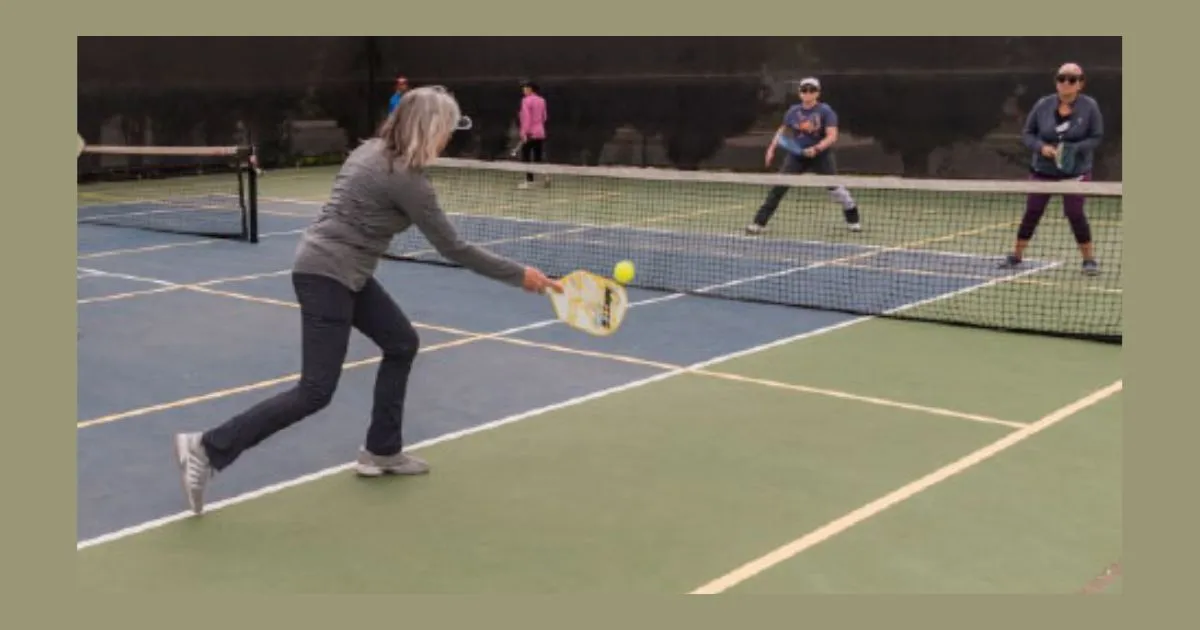Maintaining Positivity and Encouragement
Positive reinforcement and encouragement during gameplay enhance morale and contribute to a supportive doubles partnership dynamic. Pickleball, often described as a combination of tennis, badminton, and ping pong, is played with a paddle and a perforated plastic ball on a court similar to a badminton court. Simplified pickleball rules aim to make the game easier to understand and play particularly for newcomers to the sport.Scoring System in Simplified Pickleball
In simplified pickleball, the scoring system follows a rally scoring method, meaning points can be scored by either the serving or receiving team. Unlike traditional pickleball, where only the serving team can score points, this rule change adds an element of competitiveness to each rally.The Dynamics of Doubles Pickleball Communication
Communication dynamics in doubles pickleball involve verbal cues, non-verbal signals, and strategic planning to outmaneuver opponents and capitalize on scoring opportunities.Strategies for Effective Communication
Implementing specific strategies can significantly enhance communication efficacy during doubles pickleball matches.The Impact of Communication on Gameplay
Communication directly influences gameplay outcomes by facilitating strategic decision-making and optimizing player positioning and movement on the court.Overcoming Communication Challenges
While effective communication is essential, players may encounter challenges such as noise interference or misinterpretation of signals.Leveraging Non-Verbal Communication
Non-verbal cues, including gestures and body language, play a crucial role in conveying intent and coordinating movements during gameplay.Enhancing Team Chemistry through Communication
Effective communication fosters a sense of camaraderie and mutual understanding between doubles partners, leading to improved team chemistry and performance.Mastering Communication Techniques
Refining communication techniques through practice and experience is vital for achieving synergy and maximizing gameplay efficiency.Integrating Communication with Strategy
Communication seamlessly integrates with strategic gameplay, allowing players to adapt to changing circumstances and capitalize on opponent weaknesses.Communication Training and Drills
Engaging in communication-specific training drills can sharpen player skills and improve responsiveness during doubles pickleball matches.Serving in Simplified Pickleball Rules
The serve is a critical aspect of pickleball, setting the tone for each point. In simplified pickleball, the server must stand behind the baseline and make an underhand serve diagonally to the opponent’s service court. Players have the option to serve from anywhere behind the baseline, allowing for strategic placement of serves.Return of Serve
Returning the serve requires precision and control. Players should aim to return the ball deep into the opponent’s court, forcing them to hit a defensive shot. Proper footwork and racket positioning are essential for a successful return of serve.Scoring Points
There are several ways to score points in simplified pickleball. Points are awarded when the opposing team commits a fault, such as hitting the ball out of bounds or failing to return it properly. Additionally, winners, or shots that are hit beyond the reach of the opponent, also result in points.Winning Shots
Winning shots are those that are placed strategically and are difficult for the opponent to return. Shots that land close to the lines or deep in the corners of the court are often effective winning shots, putting pressure on the opponent and forcing errors.Defensive Strategies
Defense plays a crucial role in pickleball, especially when facing skilled opponents. Players should focus on positioning themselves well on the court, anticipating their opponent’s shots, and reacting quickly to defend against aggressive plays.Net Play
Dominating the net is a key strategy in pickleball, as it allows players to control the pace of the game and put pressure on their opponents. By staying close to the net and anticipating volleys, players can effectively block shots and set up winning opportunities.Footwork and Positioning
Good footwork is essential for success in pickleball. Players should focus on moving efficiently around the court, using quick, small steps to maintain balance and control. Proper positioning relative to the ball and the opponent is also crucial for executing shots effectively.Mental Approach
Maintaining a positive mindset is important in pickleball, especially during challenging moments in the game. By staying focused and resilient, players can overcome setbacks and maintain their composure under pressure.Communication with Partner
Communication is key, particularly in doubles play. Players should communicate effectively with their partners, signaling intentions and coordinating strategies to outsmart their opponents.Practice Tips
Regular practice is essential for improving skills and consistency in pickleball. Players should focus on drills that target specific aspects of their game, such as serving, returning, and volleying, to enhance their overall performance.Common Mistakes to Avoid
Common mistakes, such as hitting the ball too hard or failing to anticipate opponent’s shots, can cost valuable points in pickleball. By recognizing and correcting these errors, players can improve their game and avoid unnecessary errors.Staying Updated
Finally, staying informed about rule changes and developments in the sport is important for all pickleball players. By staying updated on the latest strategies and techniques, players can continue to refine their skills and stay competitive on the court.Conclusion
In conclusion, scoring points in simplified pickleball rules requires a combination of skill, strategy, and mental toughness. By mastering the fundamentals of serving, returning, and net play, players can increase their chances of success and enjoy a rewarding experience on the court.FAQs
- What are the key differences between traditional and simplified pickleball rules?
- Simplified pickleball rules allow both serving and receiving teams to score points, whereas traditional rules only allow the serving team to score.
- How can I improve my serving in pickleball?
- Focus on consistency and placement rather than power, and practice different types of serves to keep opponents guessing.
- What should I do if I’m struggling with my return of serve?
- Work on your footwork and positioning to get into the optimal position for returning the ball, and practice returning different types of serves to improve your adaptability.
- How important is communication in doubles pickleball?
- Communication is essential for coordinating strategies with your partner and avoiding collisions on the court.
- Where can I find more resources for learning about pickleball rules and strategies?
- There are many online tutorials, instructional videos, and community forums dedicated to pickleball that can provide valuable insights and tips for players of all levels.




